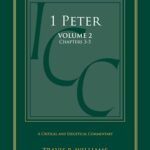The Eclipse of Creation and New Creation in Biblical Theology
One of the tensions of pan-denominational evangelicalism that fixates entirely on Gospel essentials is the eclipse of the bookends of biblical theology: creation and new creation. Details about the doctrines of creation and eschatology are interesting, we are told, but they should not be pressed, and certainly should never be made standards of ecclesiastical cooperation. It is sufficient to say that God in Christ oversaw the origin of the universe and will oversee its conclusion—the details should be left to the periphery of inconsequence and trivia.
The problem with this model is that details of creation and eschatology are not inconsequential or trivial, but vital to God’s specific expectations of his people. It is in these bookends that we discover both the birth and climax of God’s two kingdoms, the commencement and conclusion of the dominion mandate, and the crucial intersection of ora et labora, religion and culture, sacred and secular, science and faith. We find in them the warrant and obligation of ethics, the necessity and responsibility of social structuring, specifics about the mission of the Church, careful details of divine judgment, and a general window into God’s plan for the entire universe. We might add, too, with respect to the Gospel message, that as we clarify and press the details of Christ as Creator and Judge, we intensify the unbeliever’s need to embrace him as Savior.
I was reminded of this as I was reading Luke’s account of the “Triumphal Entry” of Christ that will be celebrated this coming Sunday. I was struck afresh by the import of the parable Christ offered in preparation for the week ahead (Luke 19:11–27). The people attending Christ, it seems, had an aberrant eschatology (they “thought that the kingdom of God was going to appear at once”—v. 11), and as a result they were engaged in aberrant praxis. And so Christ took time to gently and clearly disabuse them of their error. The kingdom was not imminent, Jesus explained; instead, he would be going away to receive his kingdom in a faraway place, leaving his disciples to “do the king’s business” in very difficult circumstances, the most difficult being the absence of the king.
Despite this careful explanation, eschatological confusion persisted among Christ’s companions, and after facilitating Christ’s “triumphal entry,” they experienced a euphoria that melted first into bewilderment, then into dismay, and finally into despair. Thankfully, Christ’s resurrection brought a measure of relief and additional correctives, but even these were not fully absorbed by the disciples—they still thought that the establishment of Christ’s Kingdom was imminent (see, e.g., Acts 1:6). It was not until Christ left, apparently, that they realized that the kingdom was not “going to appear at once.” And it was this realization that finally prepared them to receive and implement the distinctive mission of the Christian Church (Acts 1:7–8).
Remarkably, there is a large swath of the Church that still hasn’t figured out the meaning of Christ’s parable, and the problem is not one of minor consequence. It is only as we realize that the Kingdom euphoria anticipated on Palm Sunday was premature (i.e., that it will not be gloriously recapitulated until the eschaton), that our expectations can be properly aligned to realize and carry out the mission of the Christian Church.
The grand climax of earth history has not yet occurred. Christ’s death and Resurrection have made the climax possible (and we’ll surely hear much about these next week), but for this weekend at least, Palm Sunday stands as a premature but spine-tingling window into the future: the Revelation of Jesus Christ in power and glory to usher in a kingdom that is decidedly different from and better than our present experience. Even so come, Lord Jesus.



Very helpful. Thanks, Mark.
Brilliant, Mark. Thanks.
About Holiness: consider that peprhas holiness is not only about what we can do, but is linked inextricably to God’s justice. Thus being holy is following after God’s justice and not just living by a set of morals. Holiness is then a much more diverse and powerful idea than Christian’s don’t smoke, Christian’s don’t drink, Christian’s don’t cuss. And the positive construction could be more like: Christians feed the hungry, clothe the naked, stand up for the oppressed, etc I suppose that the holiness aspect of Evangelical churches seems to have shaped the way the larger Church as a whole thinks about holiness, and for a holiness tradition like the Church of God (Anderson), that has a large role. I’d like to see it move away from do x, don’t do z. and towards a more realistic cry for justice and peace.Some stuff to think about, in both Christian culture, and Holiness.